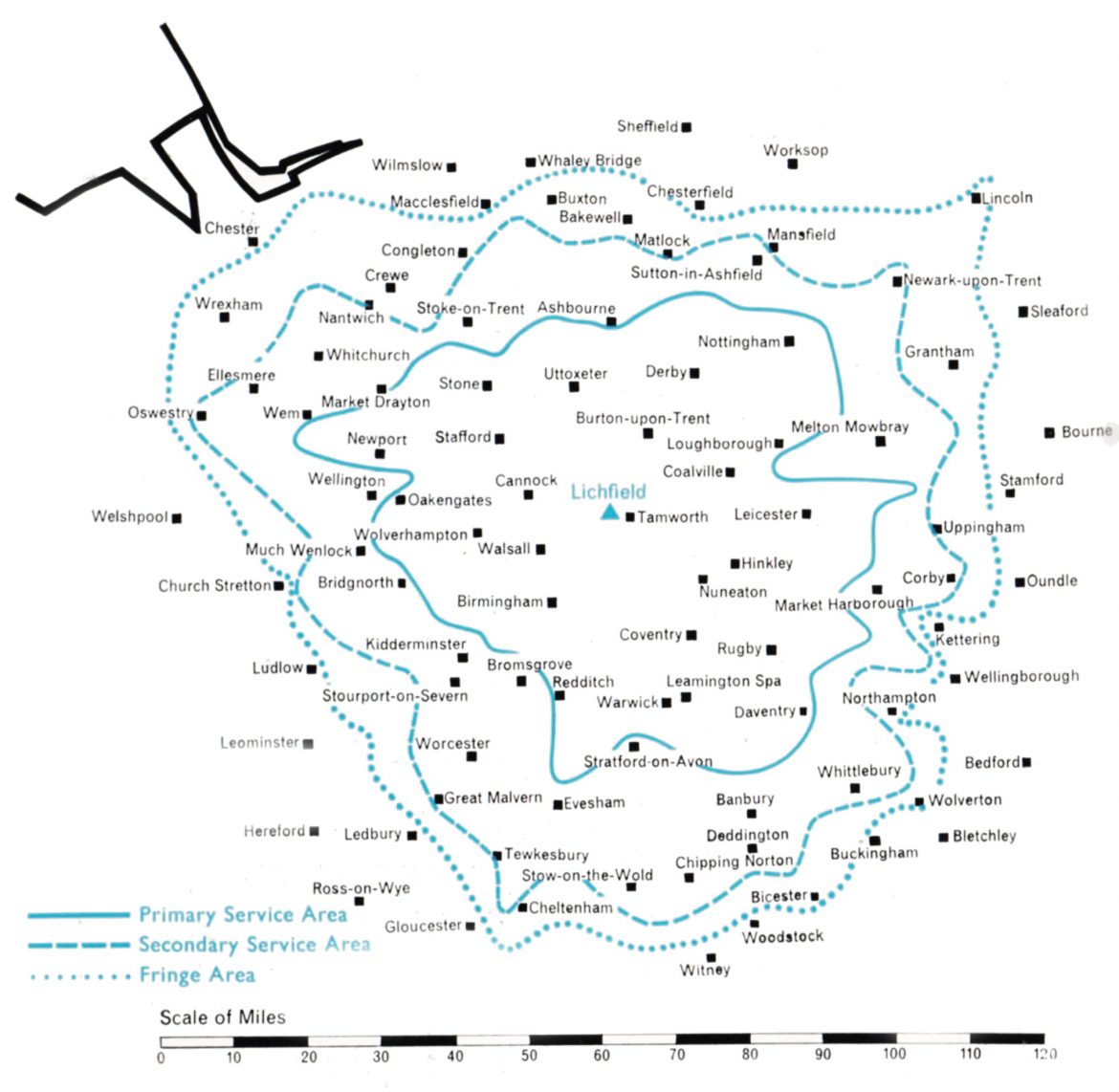How ITV Was Received on Merseyside
The Liverpool Echo reviews Granada’s first night on air in 1956… and finds that the picture is terrible

Some Viewers Complain About Lack Of Sound
Adjust Sets, Say Dealers

Radio engineers on Merseyside were inundated with calls to-day from TV owners complaining about imperfect reception of last night’s opening programmes on the Northern ITV channel.
“But in nearly every case,” said a Liverpool dealer this morning, “the complaints could have been put right by a twist of a knob.”
Most of the viewers who had trouble complained that when they switched from the BBC channel to ITV, they could receive a good picture but the sound was dead.
Throughout to-day, TV engineers have been answering telephone calls and patiently explaining to viewers that when switching from one channel to another they have to make a slight adjustment to the “fine tuner” control.
This control, in most types of receiver, takes the form of an inner or outer knob incorporated in the “13-channel” switch by which the channel is selected.
NO CHANGE

A Liverpool engineer said to-day: “All this could have been avoided if ITV had put out a full strength signal earlier. By delaying it until this week, TV engineers have had no chance at all to instruct viewers on how to tune in correctly on channel nine.”
Reception of ITV in Liverpool was generally described very good. “There was much less interference in some city areas than has been the case on BBC TV,” said a dealer. “The only areas reporting ‘ghosting’ are those blanketed by very large blocks on buildings or those on the blind side of a hill.”
In many areas of Merseyside, viewers with 13-channel sets and no special aerial reported that they were nevertheless able to receive ITV fairly satisfactorily.
NOT SO GOOD
Reception in the Birkenhead area was not quite as good as that of the B.B.C. There and in other Wirral areas, particularly in Hoylake, dealers received complaints that on channel nine viewers had sound but no picture, or alternatively a picture but no sound. Some discovered that by tuning to channel eight [ATV’s transmitter in Lichfield – Ed] viewers they were able to get a fair picture but again no sound.
Bebington and Rock Ferry reported generally good reception. At Wallasey some indifferent periods were reported.
The ITV programme was seen as far away as Llandudno, when an Echo Correspondent reported: “The quality of the picture was equal to that of the B.B.C. transmitter.”
At Wrexham there were mixed comments. Within five miles radius of the town reception was good, but other places, notably in the Dee Valley, reported only “fair” reception.
In Chester and on Deeside, “fair” reception was reported but with picture quality not so good as the B.B.C.
Russ J Graham writes:
Newspapers did not welcome the arrival of Independent Television. For a start, it would be directly competing with them for advertisers. It would also directly compete on news – removing one of the main reasons for the public buying a newspaper. It might also kill the cinema industry, leaving empty space when once there were advertisements for film show times and cheap filler article on movie stars. This was particularly acute for the publishers of the large regional evening papers, like the Liverpool Echo, whose business model was based on people buying a newspaper on their way home from work to read whilst they had their tea. Now they might eat their food in front of the TV instead. Imagine the consequences.
Therefore it’s not a surprise that articles about the new ITV stations coming on air in each region were lukewarm to say the least. The papers piled on, accusing ITV of being too light or too dull or whatever came to hand as a way of bashing it.

Granada had done their homework on this, and their short first night was very carefully tailored to make sure there was something for everybody and even a programme paying tribute to the BBC.
With no ammunition available to them, the Liverpool Echo resort to saying that the picture isn’t very good, or there’s no sound, or that television sets are big, complicated things that are far too difficult for the average person to use effectively.
They don’t quite pull it off. Problems are not unexpected, and the ones here are strange: it’s very unlikely you’d get a picture with no sound – you’re far more likely with VHF television to get the sound fine but no picture; it’s quite weird to tune into the DX signal on channel 8 – the Echo seem unaware that it’s a different company, farther away – and get a picture and no sound: Transdiffusion was in Hoylake at this exact time and could only get the ATV sound, with the occasional very grainy picture in hot weather.
All in all, a good attempt at a hatchet job on the new ITV service from Winter Hill, but one that doesn’t quite work.





